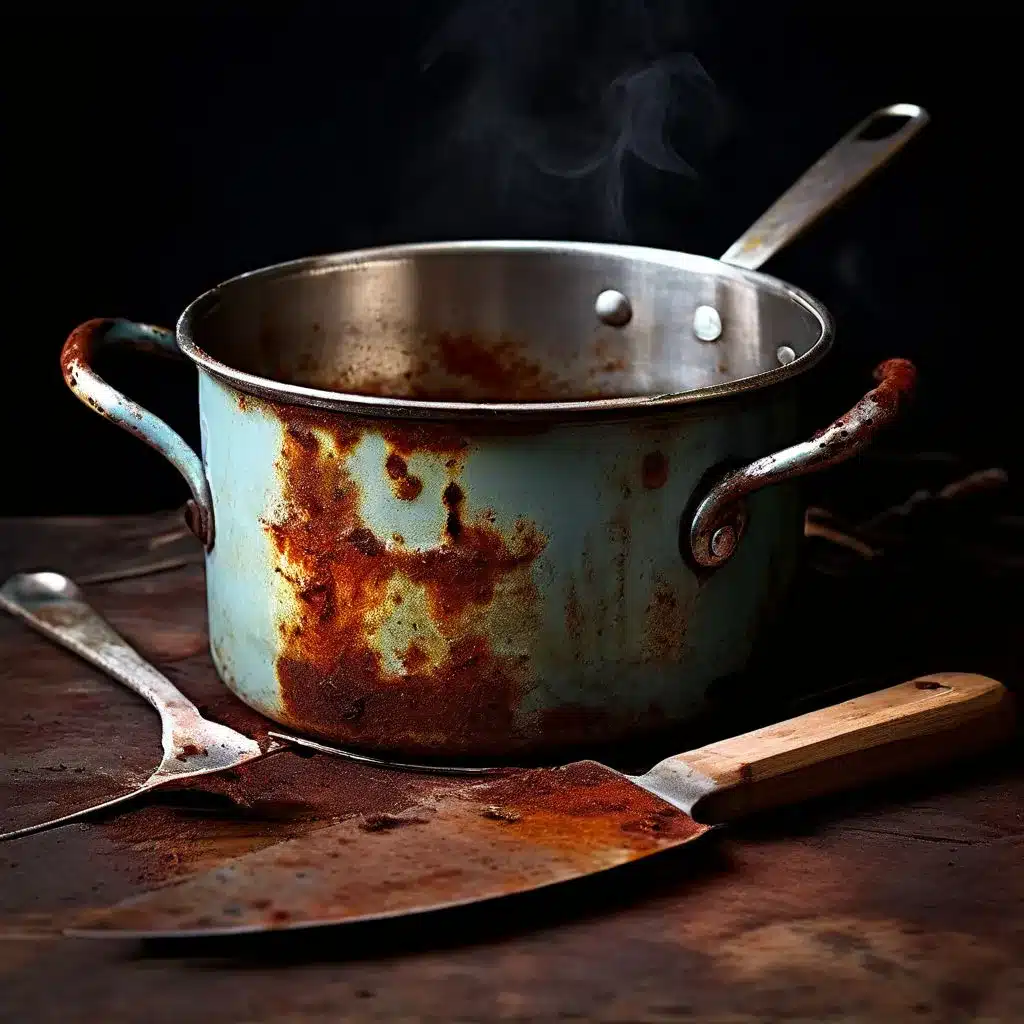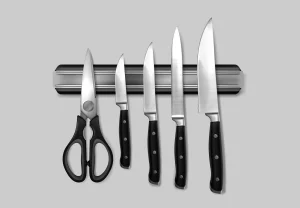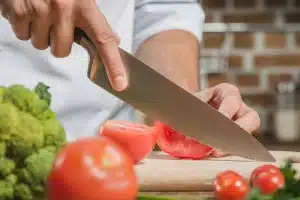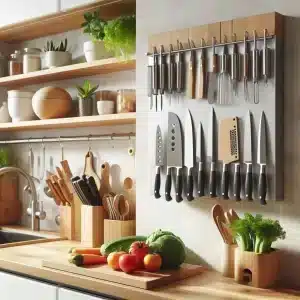Using rusty kitchen utensils is a common concern for many, but do they really pose a significant health risk? The answer is not as straightforward as it may seem. While rust can be unattractive and affect the taste of food, in most cases, it is not inherently dangerous. In this article, we will explore in detail the risks and safety measures associated with using rusty utensils in the kitchen.
Understanding Rust: What it is and How it Forms
Rust is a form of iron oxide that forms when iron is exposed to oxygen and water over a prolonged period. This chemical process, known as oxidation, results in a reddish or brownish layer on the metal’s surface. While rust may look concerning, it is simply a transformation of iron and does not introduce additional toxic elements into the material.
The Myth of Tetanus and Rust
One of the biggest concerns associated with rust is the belief that it can cause tetanus. It is important to clarify this myth. Tetanus is caused by the bacterium Clostridium tetani, which is commonly found in soil, manure, and fecal matter. The bacterium can enter the body through deep, dirty wounds, such as those caused by nails or tools contaminated with soil. Rust itself does not cause tetanus, although rusty objects that have been in contact with soil or organic matter can pose a risk if they cause a wound.
Potential Risks of Using Rusty Utensils
Taste and Food Quality
The main issue with rusty utensils is that they can impart an unpleasant metallic taste to food. Even small amounts of rust can alter the taste of meals, which is reason enough to avoid using them in the kitchen.
Iron Poisoning: Is it Possible?
While iron is an essential mineral in our diet, ingesting large amounts of rust could potentially lead to iron poisoning. This, however, is extremely rare and usually only occurs if large amounts of iron or iron supplements are ingested improperly. Symptoms of iron poisoning include stomach pains, nausea, and vomiting.
Safety Measures: How to Handle Rusty Utensils
Cleaning and Maintenance
If you have slightly rusty utensils, the recommendation is to clean them and boil them before use. Boiling can stabilize the rust and create a protective layer that prevents further oxidation. To clean rusty utensils, you can use a mixture of baking soda and water to scrub the surface, followed by thorough rinsing and drying.
Methods of Rust Stabilization
Another effective method is to apply a layer of oil after cleaning and drying the utensils. This not only protects the metal from further rusting but also helps maintain a smooth and functional surface. In the case of cast iron utensils, regular seasoning (applying a layer of oil and heating it in the oven) can be very effective in keeping them in good condition.
Special Cases: Enameled Steel Utensils
An important exception to consider is the use of enameled steel utensils. Over time, these utensils can develop chips in the enamel, exposing the underlying metal to rust. In such cases, rust can spread beneath the enamel, making it difficult to clean and increasing the risk of contamination. If the enamel chips off and comes into contact with food, it can be challenging to clean completely due to the porosity of rust. Therefore, it is advisable to replace enameled steel utensils that have significant enamel damage.
Practical Tips to Prevent Rust in the Kitchen
The best way to deal with rust is to prevent its formation in the first place. Here are some practical tips:
- Thoroughly dry utensils after washing them.
- Store them in a dry place to minimize moisture exposure.
- Apply a light layer of oil on cast iron or carbon steel utensils.
- Avoid using abrasive detergents that can damage protective surfaces.
Conclusion: Responsible Use of Kitchen Utensils
In summary, while rusty kitchen utensils are not ideal, their use is not as dangerous as often believed. The key is to keep them clean and well-maintained to minimize any risk. Regular cleaning and thorough drying are essential to prevent rusting. And if you encounter rust, cleaning and boiling the utensils can help stabilize the metal and keep it safe for use. Ultimately, prevention and proper maintenance are your best allies in maintaining a safe and functional kitchen.





